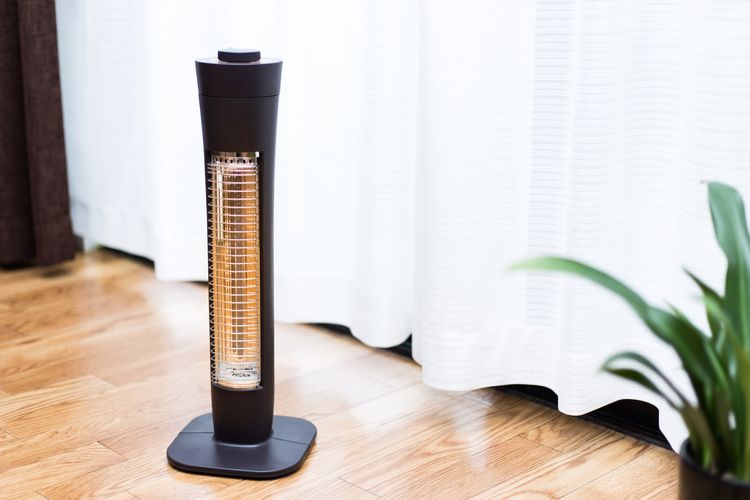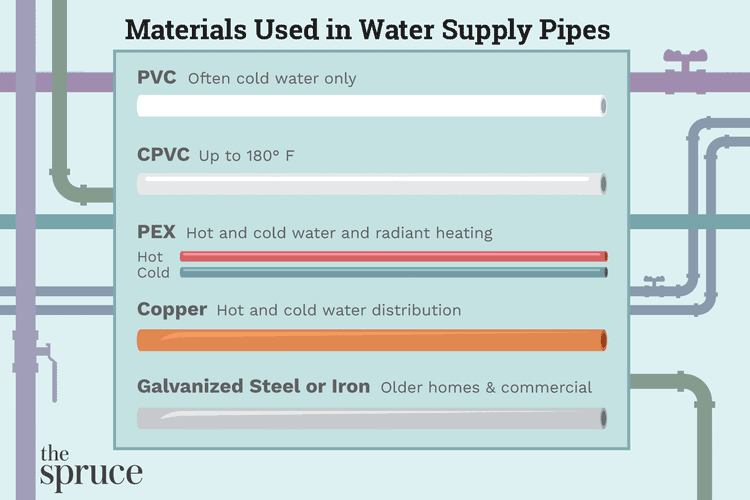Timothy Thiele holds an associate degree in electronics and is a member of IBEW Local #176, boasting more than three decades of expertise in wiring for residential, commercial, and industrial applications.

Space heaters provide an effective solution for heating a single room without the need to increase the thermostat for the entire house. These compact and portable devices can be positioned in various locations throughout the home, as long as there are no flammable materials nearby.
When selecting the ideal heater for your requirements, it’s important to explore the various types available, including convection, radiant, and combination heaters, each providing unique advantages for heating your environment. Utilizing these heaters as additional heat sources can help lower your overall heating expenses. While it’s true that your electricity bill may see a slight rise, the overall savings and increased flexibility in deciding which spaces to heat can make it worthwhile.
Discover the key factors to keep in mind when selecting a new space heater for your residence.
Contents
Things to Consider Before Purchasing a New Space Heater
Before buying a space heater, take a moment to think about where you’ll be using it and which type will be most effective for the chilly areas in your home. If you need to heat a space quickly, radiant heaters are the ideal option. Conversely, for warming up an entire room, a convection heater is more suitable. If you need a heater that can withstand regular use and wear, combination heaters are a strong contender. Select the option that aligns best with your requirements, considering the size of your rooms and how often you plan to use the heater. Prices for most models generally range from approximately $40 to $200, depending on the brand and heat output.
Factors to Consider When Purchasing Space Heaters
Space
Before buying a space heater, it’s crucial to think about the level of heat output you need. Typically, space heaters consume between 600 and 1,500 watts of electricity each hour. Generally, a higher wattage means greater heat output, but it also means higher energy consumption. Measure the square footage of the room you intend to heat, and check the heater’s specifications to confirm it can effectively and safely warm your area.
Expenses for Utilities
How does the wattage of a heater affect the charges on your utility bill when utilizing space heaters? The expenses will vary significantly depending on whether you operate your heater for a few hours weekly or rely on it as your primary heating source daily. For instance, if your space heater consumes 1,500 watts of electricity per hour, you can determine the cost on your electricity bill. To do this, multiply the wattage by the local utility rate. For example, if your electricity provider charges 10 cents per kilowatt-hour (kWh), the cost of running the heater will be approximately 15 cents for each hour of use.
Safety Features
The U.S. Consumer Product Safety Commission reports that over 25,000 residential fires occur annually due to space heater usage. Many of the latest space heater designs come equipped with safety mechanisms that help reduce the likelihood of fires in your home.
Princeton University’s Department of Environmental Health and Safety emphasizes the significance of selecting a heater equipped with a built-in thermostat and overheat protection. Such heaters enable you to set your desired room temperature and provide automatic shut-off to prevent overheating. Additionally, many space heaters come with tip-over safety switches, which are particularly beneficial in homes with children or pets, as they automatically deactivate the heater if it is accidentally knocked over.
Warning
When exploring different kinds of space heaters, it’s important to focus on their plugs and power cords. Avoid connecting a space heater to an extension cord, as this poses a significant fire risk. Instead, always use a direct wall outlet.
Varieties of Space Heating Devices
Convection Heating Systems
Convection heaters feature a distinctive design aimed at heating the air within a space rather than the individuals or items present. They generate warm air that ascends to the ceiling, displacing cooler air down to the floor, which facilitates air circulation throughout the room. These heaters can be categorized as baseboard heaters or those filled with water or oil. Among these, water- and oil-filled heaters stand out as the most efficient options, and they typically remain warm to the touch.
Infrared Heating Systems
Radiant heaters are designed to warm individuals and objects within a space rather than the air itself. This kind of heater delivers immediate warmth to anyone positioned nearby, making it an excellent option for quick heating in your home. However, it is important to recognize the potential risks linked to radiant heaters. They can cause burns to both people and pets upon contact, and they pose a fire risk if positioned too near to flammable or combustible items. Always ensure that any space heater is situated at least three feet away from such materials on all sides.
Hybrid Heating Systems
Combination heaters offer a blend of both heating methods. They utilize a fan to circulate warmth across the area, although they may not be as effective as other types of space heaters. These heaters are a suitable option for nearly any room in your house.
Electric space heaters generate one unit of heat for each unit of electricity consumed, resulting in an energy efficiency of 100 percent. In contrast, geothermal heat pumps provide three units of heat for every unit of electricity used, achieving an efficiency of 300 percent.
Cost
The price of space heaters can differ significantly based on the brand and the amount of heat they produce. Convection heaters generally fall within the price range of approximately $40 to $200. In contrast, numerous radiant space heater models are available for under $100. Combination heaters are usually priced between $60 and $120. However, similar to various household appliances, certain space heater models can exceed $400 to $500, particularly from premium brands.
As many consumers typically buy space heaters in late autumn or early winter when temperatures drop, it’s wise to plan ahead. Consider searching for your preferred heater during the spring or summer when sales are more common, allowing you to get ready for the colder months ahead. Additionally, you might find some heaters at discounted rates during Black Friday sales, as retailers anticipate the seasonal surge in demand.
Tips for Selecting a Space Heater
As various types of space heaters employ distinct techniques to heat your living space, it’s essential to assess your requirements prior to selecting the model that best fits your home. Certain heaters are designed to raise the temperature in larger rooms, whereas others are more effective for efficiently warming smaller spaces. Keep these questions in mind as you begin your search.
How frequently do you plan to utilize the space heater?
If you intend to utilize a space heater to maintain a comfortable temperature in a room for extended periods each day, a convection heater or a hybrid model could be the ideal choice for you. These types of heaters work by warming the air in the space. Specifically, convection heaters promote air circulation by drawing in cooler air from the floor, heating it, and allowing the warm air to rise to the ceiling.
How urgently do you require warmth?
Radiant space heaters are capable of quickly heating smaller spaces. For instance, if you need a heater to position in front of your preferred lounge chair or your couch during chilly winter nights, a radiant heater can be set at your feet to swiftly warm both the individuals and items in its vicinity.
Shopping Destinations
Space heaters are readily available in numerous physical and online shops throughout the year, so the decision on where to buy one ultimately depends on your individual preferences. Shopping in-store allows for immediate acquisition without the delay of shipping, whereas online retailers may present a wider selection of brands and models.
Purchasing in a physical store
Buying a space heater from a physical store gives you the opportunity to assess the dimensions and appearance of each unit firsthand. While shopping in person, make sure to examine the packaging for information on wattage, recommended room sizes, and important safety features to help you select the most suitable model for your home.
Purchasing via the Internet
When purchasing a space heater online, you’ll find a diverse range of wattage choices, brands, and features available. Begin your search on a reputable website that provides reliable shipping and return policies. After identifying a trustworthy retailer, explore various models that include essential safety features and are appropriate for the size of your rooms.
Where to Purchase a Space Heater
Numerous options are available for purchasing heaters, both in physical stores and online. When selecting a space heater, it’s essential to consider the specific type you require, along with your individual preferences related to the size of the room, safety features, and reputable brands.
Is it safe to keep space heaters running throughout the night?
It is generally safe to operate most space heaters overnight, provided they are equipped with safety features such as automatic shut-off mechanisms for overheating and tipping. Additionally, many units come with built-in thermostats to maintain a steady temperature during prolonged use.
Is it safe to connect a space heater to a surge protector?
Always connect your space heater directly to a wall outlet. Steer clear of using surge protectors or extension cords, as they can overheat and elevate the fire hazard.
Is it possible to suffer from carbon monoxide poisoning due to a space heater?
Space heaters are a leading contributor to carbon monoxide poisoning in homes. If you intend to use a heater powered by kerosene or natural gas, it’s crucial to select a model equipped with automatic shut-off safety mechanisms that monitor the oxygen levels in the environment.
Can space heaters cause your home’s circuit breaker to trip?
Certainly. If your space heater is causing your home’s circuit breaker to trip, it suggests that the heater is drawing too much power for the circuit. Space heaters can lead to circuit overheating, prompting the breaker to shut off as a safety measure. Always remember to switch off and unplug the heater when it is not in operation.

